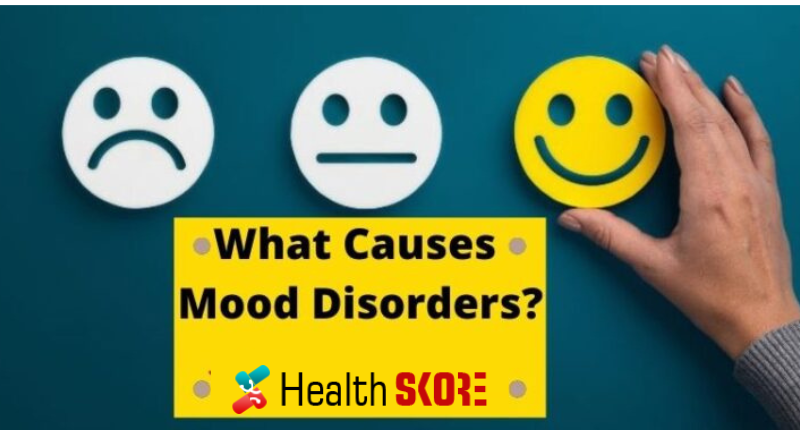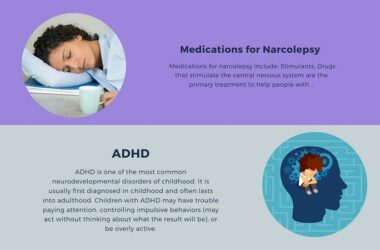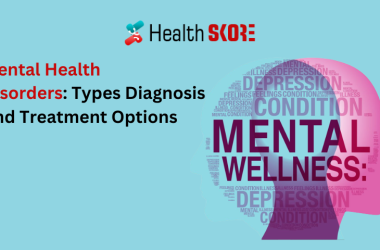What is Mood Disorders?
Mood disorders or mental illnesses are conditions that affect your thought process, feelings, mood, behavior, and nature. It happens occasionally or long-lasting, which is called chronic. It affects your ability and capability to relate to others and function every day.
Mood disorders are health conditions in case of changes in emotions. These diseases are associated with stress and problems functioning in social, work, or family activities.
Mood disorders are common somewhere:
- Nearly one in five U.S. adults experience some form of mental illness
- One in 24 has severe mood disorders
- One in 12 has a diagnosable substance use disorder
This disease is curable. The massive majority of people with mental illness continue in their daily lives.
Mental health is the foundation for emotions, thought processes, communication, learning, resilience, and self-esteem, respect. Mental health is also the key to relationships, personal and emotional wellbeing, and community or society.
Many individuals who have mood disorders do not want to talk about it. But the mental disorder is nothing to be ashamed of it. It is a medical condition and problem, just like heart disease or diabetes.
Symptoms and Causes
Signs and symptoms of mood disorders might vary, depending on the illness, circumstances, and other factors. Mood disorder symptoms might affect emotions, thoughts, and nature.
Examples of signs and symptoms including:
- Feeling sad and melancholic
- Confused thinking or less able to concentrate and coordinate
- Excessive fears or worries about something, or extreme feelings of guilt
- Drastic mood changes of highs and lows
- Withdrawal from friends and activities
- Significant tiredness, low energy, or problems sleeping
- Detachment from reality, paranoia, or hallucinations
- unable to cope with mundane problems or stress
- Trouble in understanding and relating to situations and people
- Problems with alcohol or drugs use
- Significant changes in eating habits
- Sex drive changes
- Excessive anger, hostility, or violence
- Suicidal thinking
At times symptoms of a mental health disorder appear as physical problems, like stomach pain, back pain, headache, or other unexplained aches and pains.
If you have any symptoms of a mental illness, see your primary care provider or mental health professional. Most mental illnesses do not improve on their own, and if untreated, a mental illness may worsen over time and cause serious problems.
Causes
Mental illness, in general, are a thought process to be caused by genetic and environmental factors:
- Inherited traits: mental disorder is more common in people whose blood relatives also have a mental illness. Specific genes may increase your risk of developing a mental disease, and your life condition might trigger it.
- Environmental exposures before birth:
- Exposure to ecological tensions, inflammatory conditions, toxins, alcohol, or drugs while in the womb is jointed to mental disorders.
- Nervous system chemistry: Neurotransmitters are simply occurring nervous system chemicals that carry signals to other parts of your brain and body. When the neural networks taking these chemicals are weaker, the function of nerve receivers and nerve systems change, leading to depression and other emotional disorders.
Mental disorder is a leading cause of disability. Untreated mental disorder can cause severe emotional, behavioral, natural, and physical health problems, including:
- Unhappiness and decreased enjoyment of life
- Family conflicts
- Relationships difficulties
- Social isolation
- Problems with tobacco, alcohol, and other drugs
- Missed work or school, or other issues related to work or school
- Legal and economic problems
- Poverty and homelessness problems
- Self-harm or harm to another individual, including suicide or homicide problems
- The weakened immune system, so your body has a hard time resisting infections
- Heart disease and other medical conditions
There is no surety to prevent mental illness. However, if you have a mental illness, taking steps to control stress, increase your resilience, and boost low self-esteem might help keep your symptoms under control. Do follow these steps:
- Pay attention to warning signs: Cooperate with your doctor or therapist to know what can trigger your symptoms. If you get any changes in your nature, behavior, consult your doctor right away.
- Get routine medical care: Do not miss checkups or visit your health counselor,
- Take good care of yourself: take sufficient sleep, healthy foods, and regular physical activity and exercise. Compose yourself to maintain a regular schedule.
Diagnosis and treatment:
To determine a diagnosis regarding complications, you might have:
- A physical exam: Your doctor will rule out the physical problems that might cause your symptoms.
- Lab tests: it includes a check of your thyroid function or a screening for alcohol and drugs.
- A psychological evaluation: A mental or mood health advisor talks about your symptoms, thoughts, feelings, nature, and behavior. They can ask you to fill the questionnaire to assist in answering the questions.
Classes of mood disorders:
- Neurodevelopmental disorders
- Schizophrenia spectrum and other psychotic disorders
- Bipolar and related disorders
- Depressive disorders
- Anxiety disorders
- Feeding and eating disorders
- Elimination disorders
- Sleep-wake disorders
- Sexual dysfunctions
- Gender dysphoria
- Personality disorders
- And many other mood disorders.
Treatment:
Treatment depends on the kind of mood disorder you have, its severity, and what works best for you.
If you have a mild mental disorder with well-controlled symptoms, treatment from your primary care provider might be sufficient.
For your treatment, a team can help you, including:
- Family or primary doctor
- Nurse
- Physician
- Psychiatrist, a mental doctor who diagnoses and treats mood disorders
- Social worker
- Pharmacist
- Psychotherapists, like a psychologist or a licensed counselor



